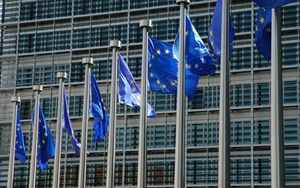(Finance) – The European Commission today adopted a proposal joint (emanating from the High Representative and the Commission) on a new set of measures to maintain and strengthen the effectiveness of the six wide-ranging and unprecedented sanctions packages already launched by the EU against Russia. Today “hold and align” package specifies a series of provisions so as to enhance legal certainty for operators and enforcement by Member States. It also improves the alignment of EU sanctions with those of allies and partners, particularly in the G7. “It is worth underlining that today’s set of measures reaffirms the Commission’s determination to safeguard the security of food supply throughout the world”, reads a statement.
“Russia is continuing its brutal war against Ukraine relentlessly. The Commission therefore proposes today to tighten the already massive EU sanctions against the Kremlin, to increase their effectiveness in implementation and to extend them until January 2023. Moscow she must continue to pay dearly for the aggression she is guilty of, “said Ursula von der Leyen, President of the European Commission.
Josep Borrell, High Representative of the Union for Foreign Affairs and Security Policy, added: “The heavy EU sanctions hurt, people close to Putin and the Kremlin remain in the crosshairs. Today’s package is part of the line that we have coordinated with international partners, including the G7. In addition to these measures, I will propose to the Council the inclusion in the list of other persons and entities, with the related corollary of freezing their assets and limiting their possibilities of shift.”
Today’s set of measures will introduce a ban on the import ofRussian gold and at the same time it will tighten controls on exports of dual-use goods and advanced technologies. This will improve the alignment of EU sanctions with those of G7 partners. It will tighten reporting requirements to tighten the asset freeze in the EU. The package reiterates that EU sanctions in no way affect trade in products agricultural between third countries and Russia and specifies the exact extent of some financial and economic sanctions.
The extension six months of the current EU sanctions, until the next review at the end of January 2023. The package is now being passed to the Council for discussion among member states with a view to adoption.
